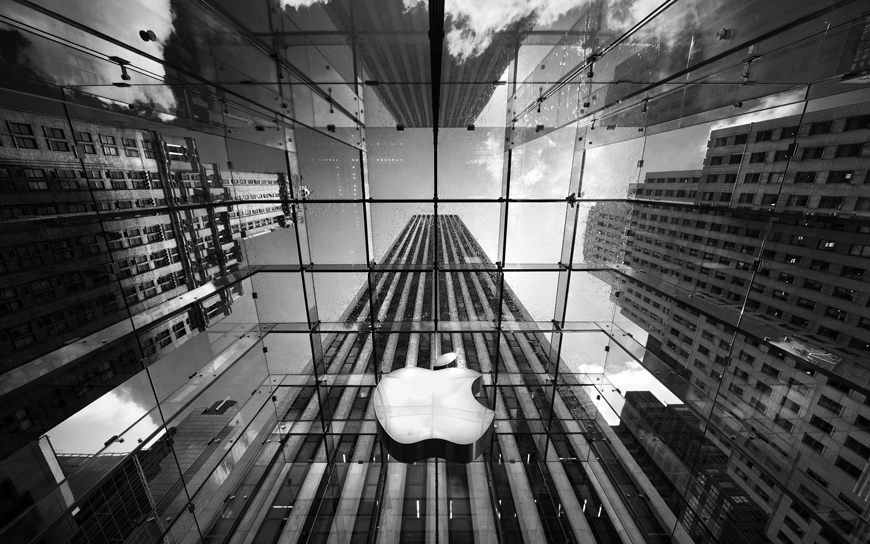Apple’s (AAPL) share prices again got hammered on Monday after the Wall Street Journal reported that the company had dramatically slashed its supply orders for the iPhone 5. This comes on top of recent rumors that Apple is preparing to make a cheaper iPhone that could help it compete with low-cost Android handsets in emerging markets, despite the fact that it could lower the company’s smartphone margins. None of this should be seen as a sign that the world’s most valuable company is about to completely implode, of course — it’s more that Apple for the first time in years is being forced to obey the laws of economic gravity.
Some perspective: Apple’s earnings over the past several years have been remarkable by any standard, especially when you consider that they’ve come during a time when the world economy has either been in recession or has shown sluggish economic growth. The basic principles of economics teach us that when money is tight, people are less willing to shell out cash for high-margin products that cost more money than competing goods. And yet Apple over the past five years was able to report record earnings despite an overall atmosphere of restrained consumer spending.
How was it able to do this? First, its supply chain management was the best in the world and it could produce products with an efficiency that was unmatched throughout the tech industry. But even more significantly, the company really was releasing products that revolutionized computing and that weren’t easily replicated by its rivals.
Consider that between 2007 and 2010, Apple released the iPhone, the Macbook Air and the iPad, the three products that respectively created mass markets for smartphones, ultrabooks and tablets. In the span of just four years, Apple released three products that effectively brought an end to the era where Windows-based PCs were the dominant machines used for surfing the web and consuming digital content. And what’s more, Apple seemingly caught much of the industry so flat-footed that it took competitors a long time to catch up.
For example, recall that RIM’s (RIMM) first major attempt to challenge the iPhone was the BlackBerry Storm, a touch screen smartphone that not only came out a full year after the original iPhone but that was a vastly inferior device hindered by both bugs and a sub par user interface. Similarly, no Android device really captured the public’s imagination until the original Motorola DROID broke through in late 2009, more than two years after the iPhone took the world by storm. And even though Android quickly grew into the world’s most widely used mobile operating system, no company could really figure out how to swing big profits with Android devices until Samsung (005930) pulled it off in 2012 with the Galaxy S III.
Microsoft (MSFT) also gave Apple a big assist over this period by being completely asleep at the wheel when it came to designing a mobile operating system capable of translating Windows to a post-PC world. Microsoft seems to have finally woken up to the mobile world with the release of Windows 8, although the company’s transition from creating desktop-centric software to mobile-centric has experienced more than a few hiccups and will likely take some time to fully mature as an OS.
But even though it’s taken Apple’s competitors a while to catch up, that doesn’t change the fact that Apple for the first time in a while is facing some pretty fierce competition in the consumer electronics market. What makes this particularly challenging for Apple is that it’s getting hit on two fronts: Competitors are releasing top-notch smartphones on the high-end such as the Galaxy S III while simultaneously chipping away at Apple’s once-dominant tablet market share on the low-end with the $200 Amazon (AMZN) Kindle Fire and the Google (GOOG) Nexus 7.
What’s more, Apple last year acknowledged consumer preferences for both larger smartphones with the iPhone 5 and smaller tablets with the iPad mini. The latter product was particularly significant because the late Steve Jobs had been skeptical that consumers really wanted to own smaller tablets. The company whose philosophy was once seemingly governed by Jobs’ notion that consumers often “don’t know what they want until you show it to them” is now learning that consumers may want things that Apple’s competitors are showing them as well.
None of which means that Apple has lost its touch and that it won’t continue to be the dominant player in the tech industry for years to come. It’s just that, for the first time in a long time, the company is now following the same rules of economics that other companies have to follow just as the cost of doing business.






